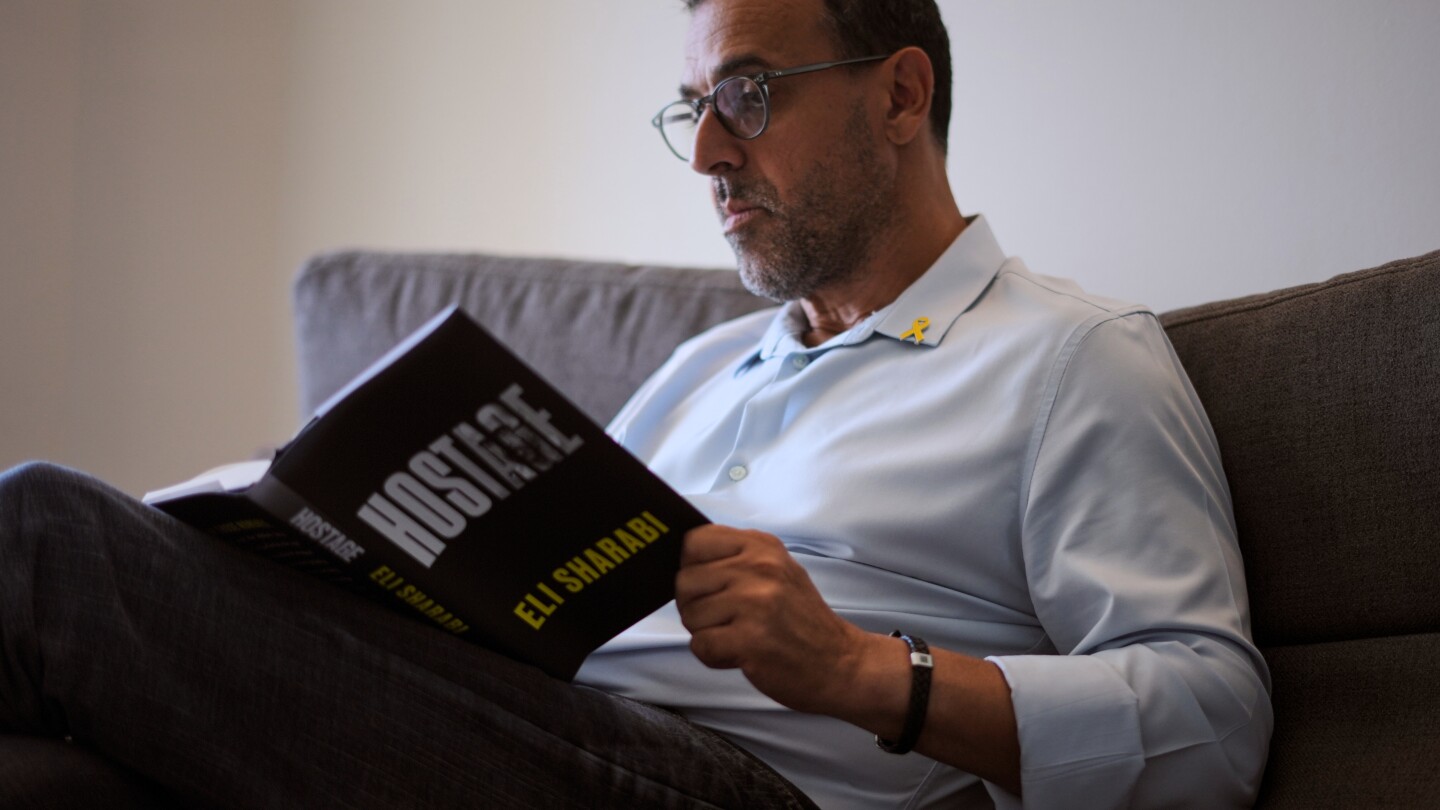URGENT UPDATE: A former Gaza hostage, Eli Sharabi, is calling for immediate action as 48 hostages remain in captivity nearly two years after the devastating Hamas attack that sparked a war in the region. As Israel marks another grim anniversary on October 7, 2023, hopes rise with a new U.S.-backed peace plan aimed at securing their release.
Sharabi, who spent 16 months in brutal conditions underground, fears for his friend and fellow hostage, Alon Ohel, believed to be among the 20 hostages still alive. “There can be no closure for me until all the hostages are returned,” Sharabi stated. His traumatic experience fuels his activism as he joins efforts to bring attention to the plight of the remaining captives.
After being freed in February 2023, Sharabi faced the heartbreaking reality of losing his wife and two teenage daughters during the October 7 attack, which left 1,200 dead and 251 kidnapped. As Israel’s military offensive continues, over 67,000 people have died, and widespread destruction has displaced around 90% of Gaza’s 2 million residents.
Sharabi’s memoir, “Hostage,” sheds light on his harrowing ordeal in the dark tunnels of Gaza, where he survived on moldy pita and faced severe violence from his captors. He described the horrific conditions, stating, “The most difficult thing was, of course, the starvation.” He emerged weighing just 44 kilograms (97 pounds), a stark reminder of the physical and emotional toll of captivity.
As the humanitarian crisis in Gaza deteriorates, reports indicate that hostages receive only a fraction of the aid intended for civilians. “They ate like kings while we starved,” Sharabi recalled, revealing the grim reality faced by those still in captivity.
The attack on Kibbutz Be’eri, where Sharabi lived, was one of the most devastating, with 106 residents killed and 30 abducted. Sharabi’s last memory of his family is haunting—seeing the terror in their eyes as he was taken from their home. He expressed a desire to return to the kibbutz, but the trauma remains overwhelming.
During captivity, Sharabi became a father figure to younger hostages, helping them maintain their spirits and bodies. They shared small victories daily, finding light in the darkest moments. “Surviving is building from lots of small victories,” he explained.
Now, Sharabi’s activism includes meeting with international leaders and addressing the U.N. Security Council, advocating relentlessly for the return of the remaining hostages. He fears for Alon Ohel, who he describes as a sensitive and talented musician. “The day I left him was one of my toughest days in captivity,” Sharabi said, as he reflected on Ohel’s panic when he realized he would be left behind during a potential release.
Sharabi hopes that sharing his story will inspire action from Israel’s leaders and others in power. He urges the public to remain aware of the hostages’ plight and to fight for their release. “You have the strength to stay alive in captivity,” he said to Ohel, “and we will do everything we promised each other.”
As international efforts continue, the urgency to secure the release of hostages remains at the forefront of discussions. With the humanitarian crisis escalating in Gaza, every moment counts. The world watches closely as Sharabi and others advocate for those who are still waiting to come home.
For the latest updates and developments, follow AP’s coverage at https://apnews.com/hub/israel-hamas-war.
